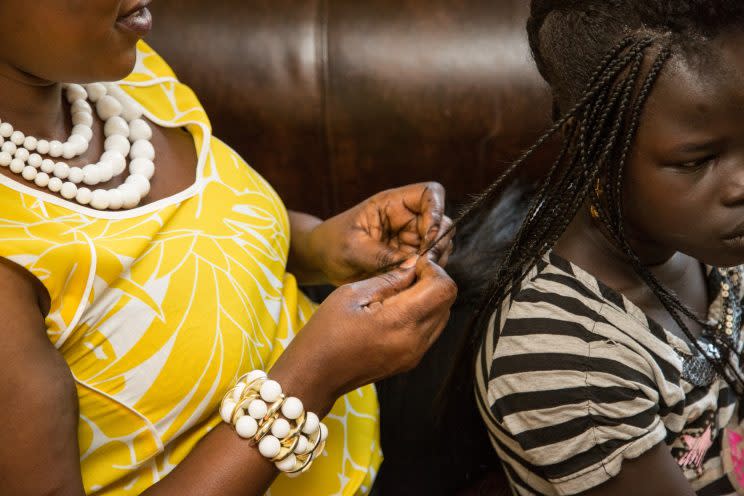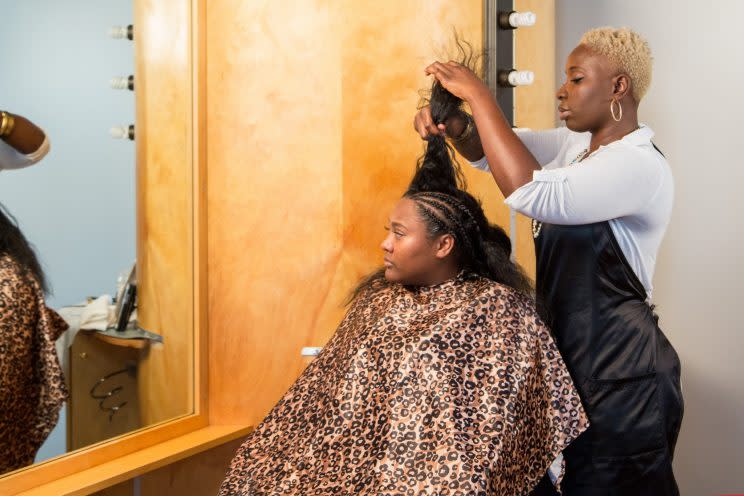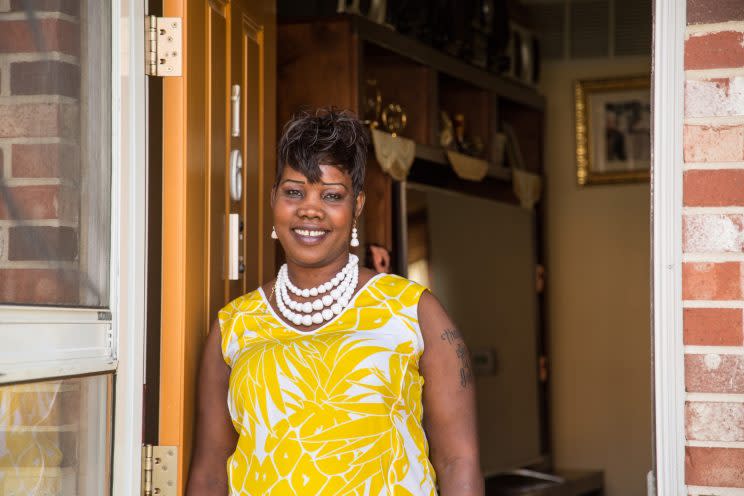Freedom for Hair Braiders in Yet Another State

It’s no secret that being a professional hair braider takes major skill and dexterity. What’s less known is how much fortitude (and money) is required to simply get through the licensing process in the many states that require braiders to undergo full cosmetology training. But this week, one of those states, Iowa, relaxed its regulations.
“This is a major victory for African-style hair braiders in Iowa,” says Meagan Forbes, an attorney with the Institute for Justice, in a press release. The organization, which fights for the economic liberty of workers across the country, had filed suit against the state of Iowa in 2015 on behalf of two braiders. “The government has no business licensing something as safe and common as hair braiding,” she says. “These reforms have now put the American dream within reach for braiders across the state [of Iowa].”
Often, those who work in the beauty service industry — including shampoo technicians and makeup artists, along with braiders — find themselves up against prohibitive state licensing regulations that are even stricter than those for prospective EMTs.

“In 23 states, natural hair braiders are forced to become licensed as either cosmetologists or hairstylists,” notes the Institute for Justice on its website, part of its Braiding Freedom initiative. “Yet few of these states actually teach natural hair braiding styles. Instead, braiders have to learn cosmetology practices they have no intent on using in their career, like giving manicures or bleaching hair. Complying with these regulations is an ordeal, with licenses requiring up to 2,100 hours of training and costing upwards of $20,000 in tuition fees at cosmetology schools.”
The very first case litigated by the Institute for Justice was on behalf of two hair braiders in Washington, D.C., which helped bring about reforms there. Since then, the organization has led 12 similar cases, winning three in court and instigating changes in laws with the other cases. Earlier this month, Kentucky scrapped laws requiring hair braiders to spend thousands of dollars on 1,800 hours of cosmetology training. The Iowa case — voluntarily dropped by institute following the change in the regulations on Thursday — was brought on behalf of two braiders, Aicheria Bell and Achan Agit, who had faced the burdensome requirements in their state.

According to Forbes, the lead attorney on the case, the strict regulations seem partly to stem from “a misunderstanding about what braiding entails.” But also, “I think there is often a protectionist motivation, so that people who go to cosmetology school can perform their services exclusively,” she tells Yahoo Beauty. Still, she says, that motivation is “irrational,” because “a lot of times, we see licensed cosmetologists unable to braid hair.” Meanwhile, cosmetology schools benefit from the requirements.
Such requirements are bad news for the economy in general, writes James Pethokoukis, a columnist for the American Enterprise Institute. “What do techies and hair braiders have in common? Both groups are often subject to unnecessary job market regulation,” he notes. “About a quarter of workers need a government license, and some 30 million Americans are working under non-compete agreements. These rules contribute to a less dynamic labor market and American economy.”
Forbes adds that, until this week, “Iowa had the worst requirements in the country, along with Nebraska and South Dakota, all requiring 2,100 hours of training.” After the institute filed its lawsuit, however, Nebraska voluntarily changed its law. “Now South Dakota is the worst,” she says. “But it’s our hope that, as we continue to litigate, more states will do the right thing on their own.”
Read this next: It’s Harder to Become a Makeup Artist Than an EMT in 33 States


